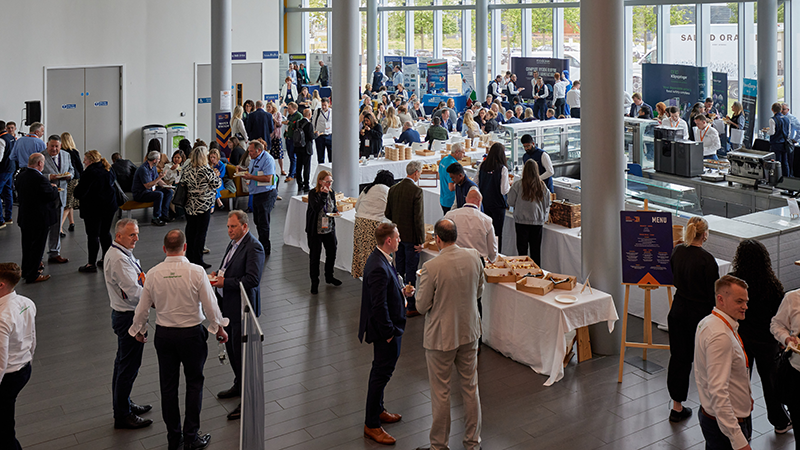Enhancing Financial Sector Growth through Networking Events

With the dynamic changes in the contemporary finance service environment, financial service professionals are always looking to establish ways of staying aware, forming purposeful connections, and forming a collaboration channel. It would be most cost-effective to aim at targeted industry events. The FSI networking event comes with a rare opportunity where people representing various fields of interest in the financial services industry gather and share ideas and experiences, network, and learn new prospects within the industry. Such occurrences are very important in advancing the future of the financial industry because they promote communication and development.
- Understanding the Role of Networking in the Financial Sector
Relationships usually define the course of careers, relationships, and innovations in the financial services industry. Networking is not like placing business cards in each other’s hands; it is rather about building trust, exchanging ideas and finding new opportunities. The cut-throat nature of the commercial world requires that the professional in the field not only be learned but also be linked. Events directed to the FSI sector enable participants to communicate with thought leaders, appreciate market changes, and find solutions to problems peculiar to the industry.
- Why Attending Industry-Specific Events Matters
Generic networking events do not always have a high value in knowing industry-based trends and technology. On the contrary, specific conferences that target the financial services sector address specialised matters such as regulatory compliance, data security, digital banking and consumer behaviour change. By attending such focused events, specialists are more likely to get informed about the problems and solutions specific to the niche. It also makes discussions necessary and closer to action.
- Benefits of Engaging with Peers and Industry Leaders
When networking through an FSI event, the attendees usually have the chance to connect with C-level professionals, information technology creators, compliance professionals, and business strategists, all in one place. This can be allowed exposure to the extent that one has a well-rounded view of how different departments and positions affect each other. The combination of communications in such events can result in working concepts, mentoring relationships and strategic partnerships that would otherwise be difficult to develop in usual business environments.
- Expanding Knowledge Through Real-Time Learning
One of the greatest industry networking opportunities is access to workshops, panels, and keynotes. The sessions offer real-time information concerning new technologies, policy updates, and best practices. Professionals will also come back to their jobs not only with networks but with additional knowledge. Be it a lecture on artificial intelligence applications in the banking sector or a debate on the future course of investments, the education process is dynamic and immensely applicable to how things are done.
- Collaborating to Promote Innovation
The financial services business lives on innovation. From digital wallets to blockchain solutions, the industry is always expanding. Networking gatherings function as incubators for these ideas. When experts from diverse specialities—like IT, compliance, customer service, and operations—meet and chat, they provide a range of viewpoints. This variety of opinions may give rise to innovative ideas that would not have been conceivable in segregated contexts.
- Opportunities for Personal and Professional Branding
People can also become thought leaders when they engage in conversations by asking useful questions or suggesting ideas. This can be like an invitation to panel discussions, collaborative research or even career advancement. There are also facilities in events such as breakout sessions or roundtables where fewer people can explore a certain area in detail. This feature gives the attendees more exposure and enhances peer interactions.
- Creating Business Development Opportunities
Besides personal branding, FSI networking events are good business development grounds. This is whether it is a fintech startup wishing to present its recent platform or a mature consultancy that aspires to increase the consumer base; these events attract prospective partners, customers, and investors. The formality and informality of the event environment induce people to engage in informal interactions and assist in measuring the immediate interest of an individual in a product or service proposition.
- Learning from the Success Stories of Others
One of the modest but important components of attending networking events is hearing real-world success stories and problems. Panels frequently contain case studies where firms describe their path of change, including the difficulties they experienced and the solutions they applied. These tales give not only inspiration but also a practical perspective on what it takes to make a change in the financial industry.
- Keeping Up with Regulatory and Technological Shifts
The technologically intensive and highly regulated business sector is the financial services industry. They may feel they are not current, miss out on compliances, or create competitive challenges. Regulatory events are often networking events that tend to put the governance specialists and technology innovators on the spot and provide effective updates and insights. The participants leave with a better knowledge of the changes that will happen and how they can prepare their organisations to meet the changes. This kind of insight is not usually provided by normal research or news.
- Post-Event Relationship Building and Long-Term Impact
The advantages of a networking event don’t cease when the venue shuts. In reality, the post-event period is when the true relationship-building occurs. Following up with contacts, maintaining talks, or even organising joint efforts may lead to enduring connections. Many professionals attribute their most influential business ties to early interactions at industry networking events. When used appropriately, these ties may lead to long-term company development and mutual success.
Conclusion
Working in an industry where change is a norm and collaboration is the most valued key to success, an active participant status at the industry-related assemblies is not a choice but rather a necessity. Although there is increased opportunity in connection via virtual space through digital tools and platforms, nothing could be compared to the substance and level of personal communication. By attending a specialFSI premier conference, not only can the professionals keep themselves abreast of the trends in the industry, but also get a chance to build relationships that will define the future of finance. With the financial world still evolving, it is clearly understood that individuals who take time to engage in quality networking will surely lead, adapt, and innovate better.







